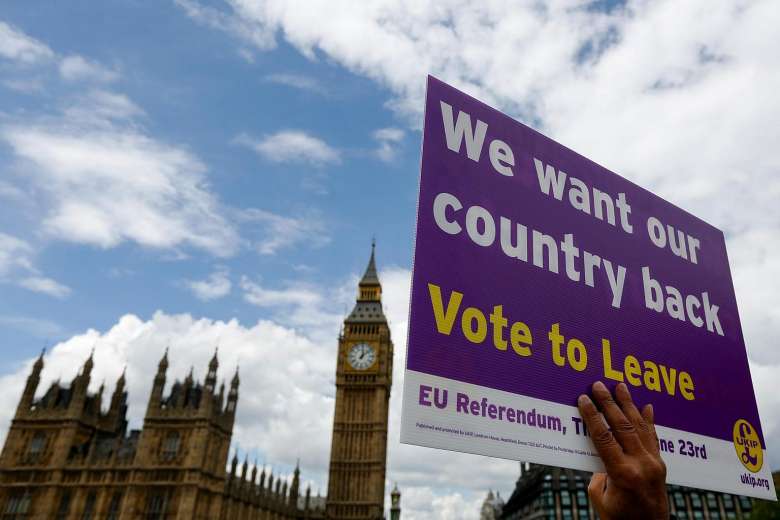
Reeling from the murder of MP Jo Cox, the EU referendum campaigns resumed Sunday, with just four days to go until the critical vote that will shape Britain's future.
The Remain and Leave camps suspended campaigning for three days after the killing of Cox on Thursday. A 52-year-old man has appeared in court charged with her murder.
But with the polls too close to call, leaders were to hit the television studios on Sunday to begin their final push for votes.
Prime Minister David Cameron, who wants Britain to stay in the European Union, said the country was facing an "an existential choice" from which there would be "no turning back".
Meanwhile Britain's Sunday newspapers picked sides in their final editions before the referendum.
The Mail on Sunday and The Observer gave their support to the Remain camp, while The Sunday Times and The Sunday Telegraph broadsheets backed quitting the EU.
Resuming the campaign, Cameron said the British economy "hangs in the balance", with trade and investment set to suffer in the event of a Leave vote and a "probable recession" that would leave the UK "permanently poorer".
"If you're not sure, don't take the risk of leaving. If you don't know, don't go," he wrote in The Sunday Telegraph.
"If we were to leave and it quickly turned out to be a big mistake, there wouldn't be a way of changing our minds and having another go. This is it."
Cameron, finance minister George Osborne and opposition Labour leader Jeremy Corbyn, from the Remain camp, were all set for major TV appearances on Sunday.
Meanwhile Nigel Farage, leader of the UK Independence Party, was set to do the same for the Leave camp.
The What UK Thinks website's average of the last six polls, conducted between June 10 and Saturday, put the Remain and Leave camps absolutely level on 50-50, excluding undecided voters.
The Leave camp had been a few percentage points ahead in recent polling, but fresh surveys showing a rise in support for remaining brought the average neck-and-neck.
They included the first carried out since Cox's murder: a Survation poll on Friday and Saturday that put the Remain on 45 per cent and Leave on 42 per cent.
The results were the reverse Survation's Thursday poll, which had Leave ahead by 45 to 42.
Labour MP Cox had campaigned for Britain to stay in the EU.
She was shot and stabbed in the street in what police called a "targeted" daylight attack in her constituency.
Cox's alleged killer Thomas Mair said "Death to traitors, freedom for Britain" when asked to give his name at Westminster Magistrates Court in London on Saturday.
He was remanded in custody until his next court appearance on Monday at England's central criminal court, and a psychiatric report has been requested.
Cox, 41, is survived by her husband Brendan and their children Lejla, five, and three-year-old Cuillin.
The murder, the first of a sitting British member of parliament since 1990, sent shockwaves around the world, drawing tributes from leaders including US President Barack Obama.
A fund created in Cox's memory by her friends and family has raised more than £570,000 for charities close to her heart.
In making their decisions, Britain's Sunday newspapers tried to sway their readers in how to vote.
The Mail On Sunday warned it was "not the time to risk the peace and prosperity" of the UK.
"Our deepest desires must somehow be moderated to suit the increasingly tough reality of a competitive world," the tabloid said.
"Those who would have you believe in the plucky Little England of the past are selling a dangerous illusion." The Observer said: "For an international, liberal and open Britain, we need to be part of the EU."
The choice was between "going it alone" or a "messy, imperfect collective", but "outside the EU, our role in the world would be diminished."
The Sunday Telegraph, meanwhile, backed Brexit, declaring that the EU "belongs to the past".
"The Leave campaign has articulated an ambitious vision for Britain as an independent nation, once again free to make its own decisions," it said.
The Sunday Times said "Yes, we must be prepared for difficulties, but we should hold our nerve" in voting Leave.
"This vote may be the only opportunity we shall ever have to call a halt to the onward march of the centralising European project.
"We can help our friends face a better future."afp, photo by bloomberg



































